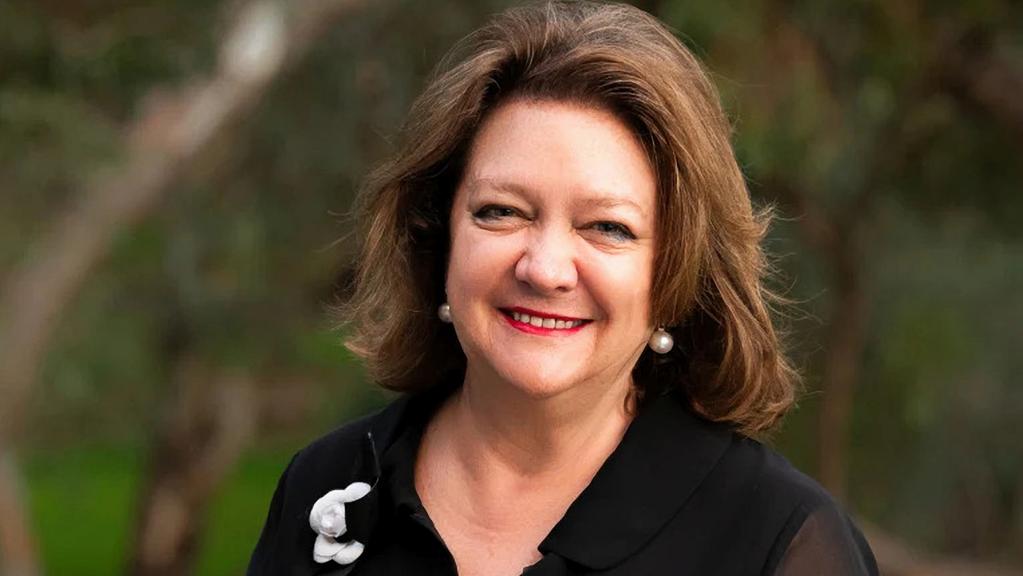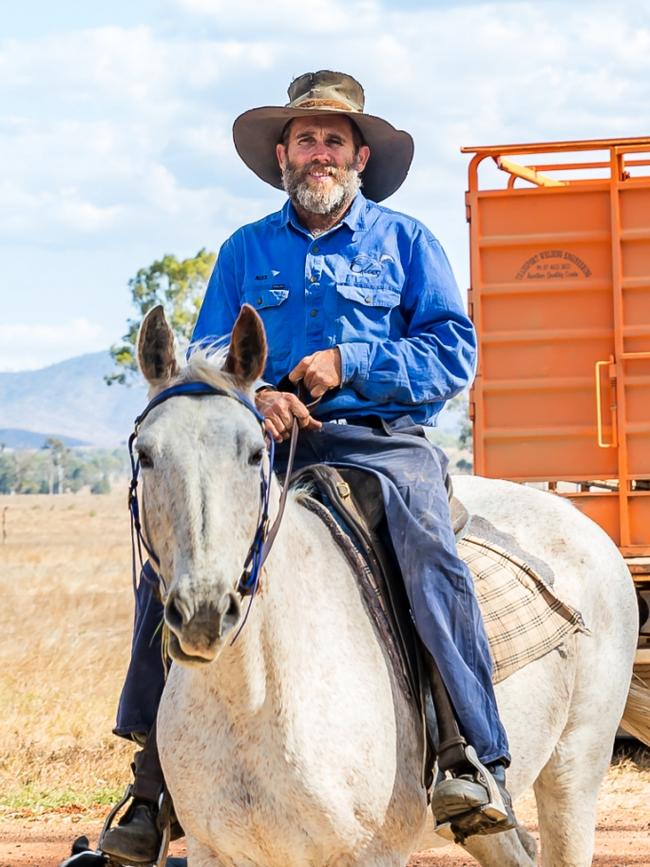
Article by Brad Thompson, courtesy of The Australian.
20.08.2025

Gina Rinehart says the unchecked spread of vast wind and solar energy projects in regional Australia is having a heartbreaking impact on farmers and communities.
Mrs Rinehart said farmers were suffering from the Albanese government’s net zero ideology, and worse was to come under “Climategate”.
The mining magnate and Australia’s second-biggest beef producer with 25 properties and more than 340,000 cattle said the rush to implement net zero policies based around wind and solar projects could limit food production and send farmers to the wall.
Mrs Rinehart delivered her warning in a video presentation to The Australian’s Bush Summit in Broome on Wednesday that included input from farmers in Queensland and NSW directly affected by wind and solar projects.
“As we speed up Climategate, there’ll be worse to come. Australia, still being in the Paris accord, will saddle them (farmers) with net zero restrictions, paperwork and huge expense,” she said.
“They already have more than enough to worry about with devastating droughts, floods, fires, jail and fines if they clear land to make their family, staff and investment safe, rising taxes, poor health facilities in country areas plus toxic solar panels, mainly foreign-owned, and the fire risk of the transmission lines and wind towers and more.
“They don’t need to have the added expense of complying to net zero emission reductions.”
Mrs Rinehart spoke out as farmers and miners push the federal and state governments for consistent land access rules amid a backlash over politicians and bureaucrats prioritising the handing over of vast tracts of regional Australia to promoters of renewable energy projects despite a string of setbacks, most notably in green hydrogen.
The Association of Mining and Exploration Companies, which has 500 member companies, is leading the resources industry campaign after claiming established land users are being forced to play second fiddle to renewables promoters being granted exclusive access to tens of thousands of hectares.
AMEC wants a level playing field amid growing doubts about green hydrogen and rural community opposition to having wind turbines, solar arrays and transmission lines spread across the land.
Mrs Rinehart said farmers were victims of bad government policies and increasing red and green tape, and that the worst of it was associated with the Paris Agreement on climate.
“The impact (on farmers) will greatly increase when they have to also deal with net zero themselves,” she said. “It’s not even assured that the renewables electricity harming their farms and lives will even reach the farmers, so they face the net zero ramifications of their fossil fuel electricity and essential machinery without that offset.”

Queensland cattle producers Cedric and Therese Creed are among the farmers featured in Mrs Rinehart’s presentation.
Speaking from the family farm at Smoky Creek, Mr Creed said wind and solar projects were being built on “A-grade food-producing land”.
“The most important thing for us out of this is to get people to know that their food supply is getting shortened. People think they can just keep going to Woolies and getting their food. Well, it’s got to come from somewhere, and it comes from here,” he said.
Ms Creed questioned why the same regulations imposed on farmers didn’t apply to wind and solar developers.
“We’ve been asking ourselves for a long time why the government has taken this direction, the net zero target, because it’s such a rush. They want softer soil, they want clear land. They don’t want any regulations, because they have to rush this stuff through,” she said.
“Politicians today are putting more and more restrictions on us food producers, and that these renewable energy companies are exempt from.”
The Creeds spent years battling a solar project adjoining their farm near Biloela, which has one of the sites earmarked for a nuclear power plant under the energy plan the then Peter Dutton-led Liberal Party took to the last election.
On the Rinehart presentation, farmers from Wellington and Coolah in NSW share similar concerns, and far north Queensland-based Steven Nowakowski, of Rainforest Reserves Australia, questions why wind farms are being built in areas classed as wildlife refuges.
Mr Nowakowski said recently released figures on bird and bat deaths show the devastating impact from the Kaban wind farm in the Atherton Tablelands owned and operated by French company Neoen.
The Queensland government has said the location was selected because it is particularly windy and next to a transmission line for rapid export to the state’s grid.
Mrs Rinehart, whose private company, Hancock Prospecting, sponsors the Bush Summit, spoke while standing in the rain next to a two-bedroom house built by a family that helped pioneer dairy farming in WA’s southwest.
She paid tribute to the Daubney family who in 1924 founded what is now known as Bannister Downs Dairy. Mrs Rinehart is a partner in the dairy alongside Mat and Sue Daubney, and also has a truffle farm in the region.
